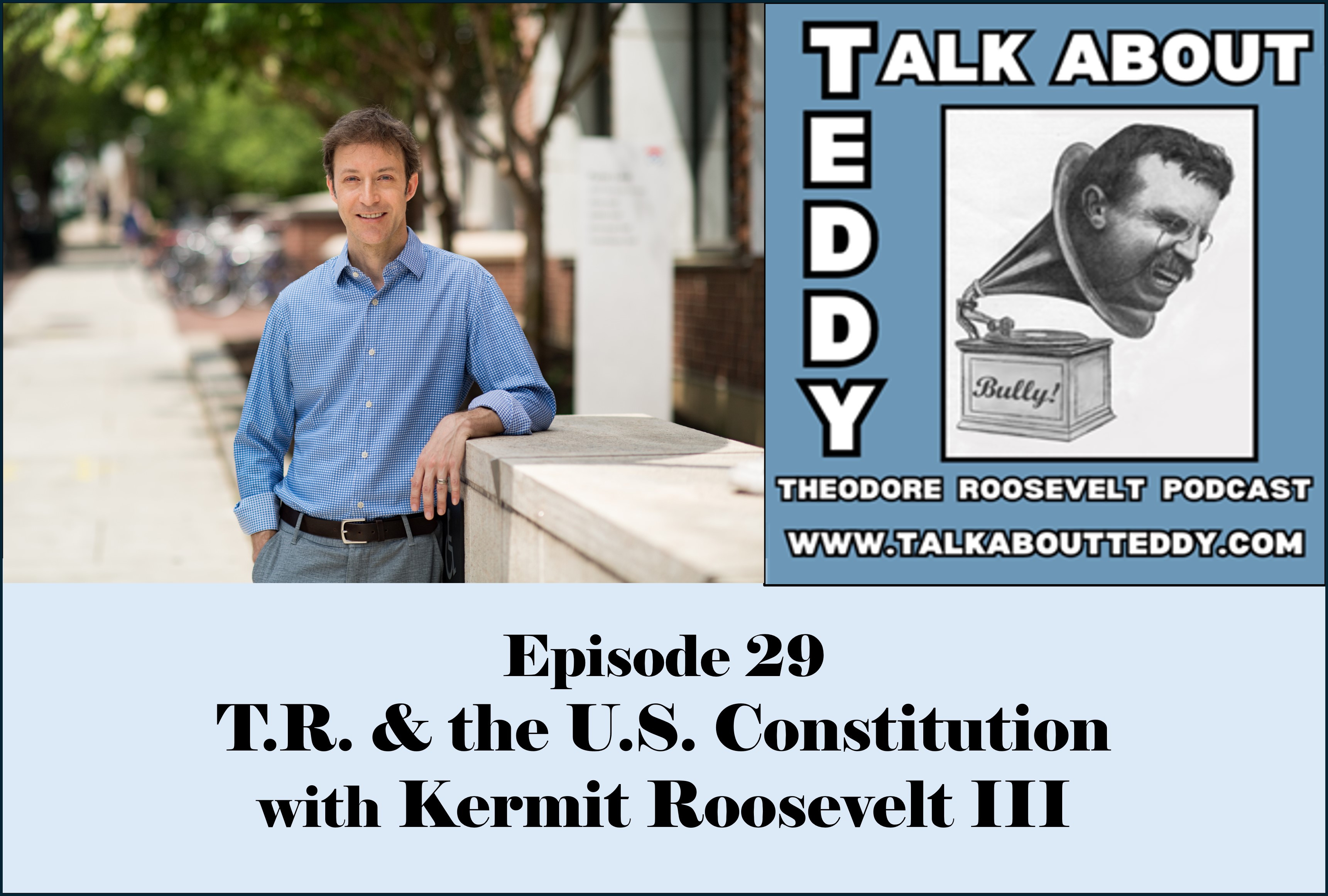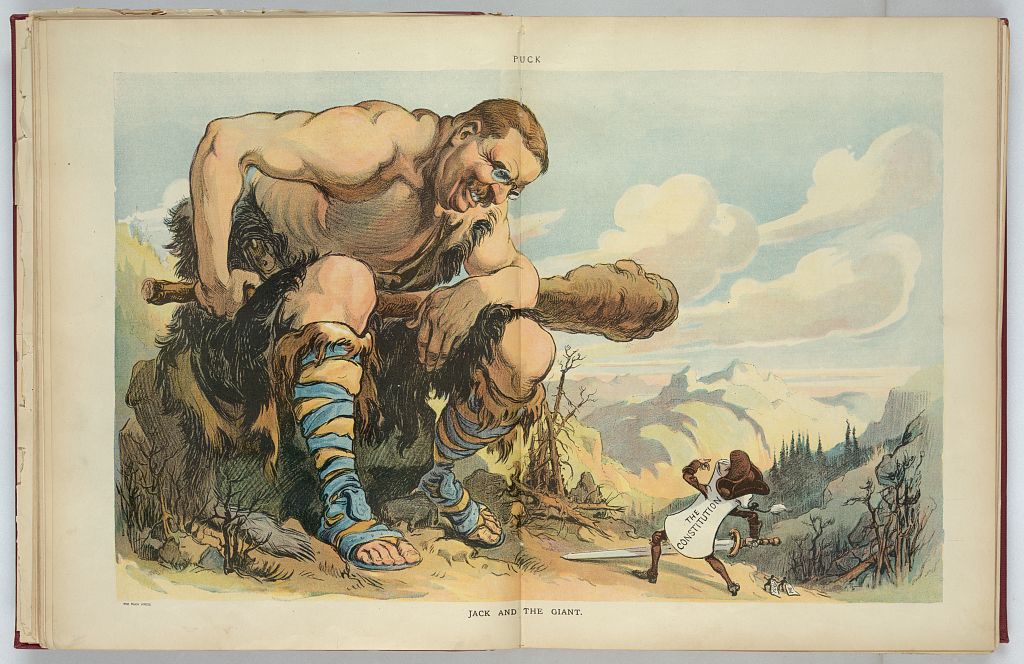Episode 29 - T.R. & the U.S. Constitution with Kermit Roosevelt III


Hosts Kurt Skinner & Larry Marple are joined by special guest, Kermit Roosevelt III to discuss his great-great grandfather, Theodore Roosevelt, and the U.S. Constitution.
Professor Roosevelt discusses Theodore Roosevelt's views on social justice, his trust in the American people to govern themselves, and his progressive ideals. The conversation covers TR's belief in a powerful national government to address national issues, highlighting TR's legacy as a modern, democratic leader. Professor Roosevelt also elaborates on his 2022 book, 'The Nation That Never Was,' comparing TR’s progressive ideals with historical constitutional interpretations.
To learn more about Kermit Roosevelt's work, to include his most recent book, The Nation That Never Was: Reconstructing America's Story, go to his website https://kermitroosevelt.net/
Excerpt from Theodore Roosevelt: An Autobiography (chapter 10 - The Presidency):
"The most important factor in getting the right spirit in my Administration, next to the insistence upon courage, honesty, and a genuine democracy of desire to serve the plain people, was my insistence upon the theory that the executive power was limited only by specific restrictions and prohibitions appearing in the Constitution or imposed by the Congress under its Constitutional powers. My view was that every executive officer, and above all every executive officer in high position, was a steward of the people bound actively and affirmatively to do all he could for the people, and not to content himself with the negative merit of keeping his talents undamaged in a napkin. I declined to adopt the view that what was imperatively necessary for the Nation could not be done by the President unless he could find some specific authorization to do it. My belief was that it was not only his right but his duty to do anything that the needs of the Nation demanded unless such action was forbidden by the Constitution or by the laws. Under this interpretation of executive power I did and caused to be done many things not previously done by the President and the heads of the departments. I did not usurp power, but I did greatly broaden the use of executive power. In other words, I acted for the public welfare, I acted for the common well-being of all our people, whenever and in whatever manner was necessary, unless prevented by direct constitutional or legislative prohibition. I did not care a rap for the mere form and show of power; I cared immensely for the use that could be made of the substance."
- Illustration from Puck , 1907 March 20, shows Theodore Roosevelt as a giant sitting on a rock with a large stick across his lap; he is being challenged by a diminutive figure labeled "The Constitution" with a large sword and two even smaller figures labeled "You" and "Me".
- Keppler, Udo J., Artist. Jack and the giant / Keppler. , 1907. N.Y.: J. Ottmann Lith. Co., Puck Bldg. Photograph. https://www.loc.gov/item/2011647187/.









